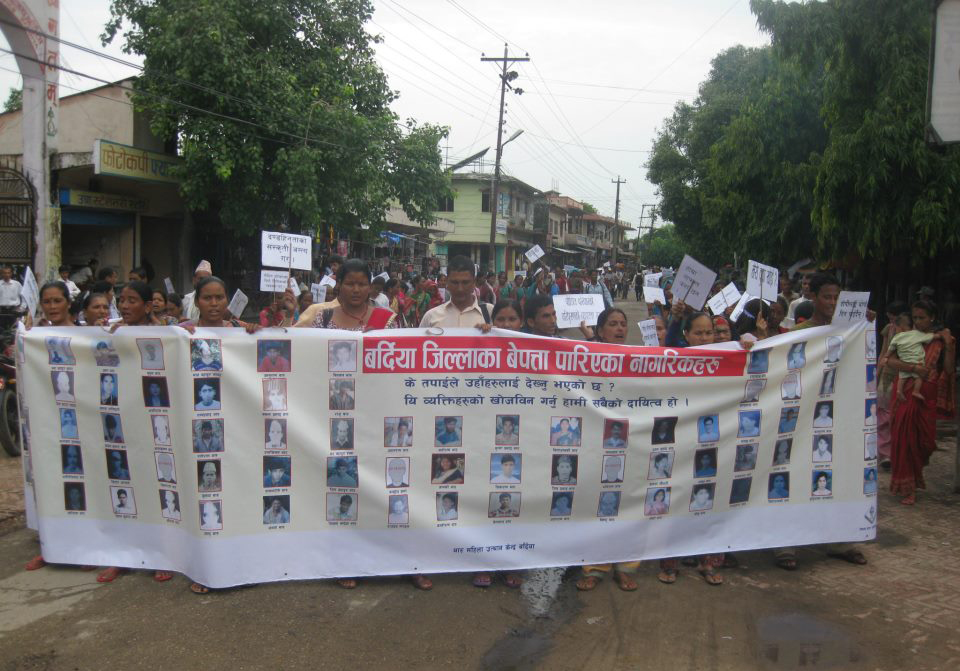
Jun 3, 2014 | Advocacy, Analysis briefs
The ICJ’s commentary analyses in detail the 7 November 2013 judgment of the Court of Justice of the EU (CJEU) in joined cases arising from three asylum claims asserting a well-founded fear of persecution based on same-sex sexual orientation.
Positively, in X, Y and Z v. Minister voor Immigratie en Asiel, the Court found that asylum applicants who have a same-sex sexual orientation and come from countries where consensual homosexual conduct is criminalized, form a particular social group for the purposes of EU refugee law.
Further, the Court’s recognition that sexual orientation is a characteristic so fundamental to one’s identity that one cannot be expected to renounce or conceal it, or to exercise greater restraint in its expression than heterosexuals, is welcome.
Likewise, the Court’s finding that the enforcement of a term of imprisonment that sanctions consensual homosexual acts must be regarded as a disproportionate or discriminatory punishment, and is thus persecutory, is a step forward, particularly given that in some EU countries this was hitherto not the case.
However, in some important respects this judgment represents a missed opportunity. The Court failed to clarify the inconsistency between secondary EU refugee law and the UNHCR’s authoritative interpretation of “a particular social group” in the Refugee Convention’s definition of a refugee.
Further, in choosing to maintain the narrow scope of the questions referred to it, the Court ended up with an unwarrantedly restrictive reading of EU refugee law, which ignores the numerous persecutory effects of criminalizing consensual same-sex sexual orientation or gender identity.
The Court missed a chance to state that these laws, even when they are not enforced in the sense that there exists a recent record of enforcement through the actual imposition of terms of imprisonment, have a persecutory effect, as they criminalize an essential characteristic of one’s identity.
Background
The ICJ decided to publish this commentary for a number of reasons.
First, the CJEU plays an important role in shaping international refugee law jurisprudence.
Further, asylum applications based on a well-founded fear of persecution for reason of real or imputed sexual orientation and/or gender identity or expression are unfortunately likely to increase, both within the EU and beyond.
Moreover, the CJEU’s judgment in this case is likely to have a bearing on the determination of asylum claims premised on membership of other particular social groups.
Lastly, the implementation by the EU and its Member States of the recently “recast” Common European Asylum System will likely give rise to several new referrals to the Court, whose interpretation of the recast instruments will also depend on its asylum case law precedents, including the CJEU’s judgment in this case.
CommentaryXYZ-Advocacy-2014

Jun 2, 2014 | Events
The ICJ, with the International Federation for Human Rights (FIDH), will be convening a high-level lunch meeting on ‘Business and Human Rights: Enhancing Standards and Ensuring Redress’ on 4 June 2014.
The meeting will discuss the needs and options for enhancing international law and standards pertaining to the transnational operation of business enterprises, with a particular emphasis on ensuring redress for victims of human rights abuses.
The meeting will be moderated by Geneviève Paul, Head of Globalisation and Human Rights for FIDH. Speakers will be Bertrand Swiderski, Sustainability Director for the Carrefour Group; Regine Barth, Head of Environmental Law & Governance Division at the Oko-Institut; Debbie Stothard, FIDH Secretary-General and Coordinator of the Alternative ASEAN Network on Burma; and Carlos Lopez, Senior Legal Adviser at the International Commission of Jurists.
FIDH-ICJ-BHRStandardsAndRedress-Event-2014 (download flyer in PDF)

May 28, 2014 | News
The ICJ today called on the Government of Nepal to amend the 2014 Commission on Investigation of Disappeared Persons, Truth and Reconciliation Act (TRC Act 2014) to bring it in line with international law.

May 22, 2014 | Incidencia
En el presente informe la CIJ llama a la atención del Comité las debilidades del sistema legal y judicial del Estado colombiano y sus falencias en relación a su deber de protección de niños y niñas de comunidades locales y afrodescendientes en zonas de conflicto.
La CIJ solicita al Comité pedir información al Estado sobre las medidas y acciones desplegadas para la protección de los niños, niñas y adolescentes ante las actividades y operaciones de las empresas con actividad en la jurisdicción Colombiana, y para revisar el Plan de Acción Nacional o incluir en los distintos planes o programas sectoriales medidas concretas para proteger los derechos del Niño ante las actividades y operaciones de las empresas.
El informe hace referencia a la sentencia de la Corte Interamericana de Derechos Humanos en el caso de la Operación Génesis, en la cual se vulneraron derechos de comunidades afrodescendientes, incluidos niños.
La Corte, en base al Articulo 5 de la Convención Americana, se refiere a la Convención de derechos del Niño, y condena a Colombia por no adoptar las medidas necesarias para proteger a los niños y a las niñas de las comunidades afrodescendientes de la cuenca del río Cacarica ante las actividades de explotación forestal y la actividad de concesión de CODECHOCÓ, ha vulnerado su derecho a la vida, supervivencia y desarrollo (art. 6), derecho a la salud (art. 24) y el derecho a un nivel adecuado de vida (art. 27).
Asimismo se han vulnerado otros derechos de la Covención. Al respecto la CIJ solicita al Comité que pida información a Colombia sobre las medidas adoptadas o por adoptarse por el Gobierno Colombiano para hacer efectivo el fallo de la Corte Interamericana, especialmente su obligación de investigar para acabar con la impunidad y sancionar a las empresas que han vulnerado los derechos de los niños, así como en la adopción de las medidas de satisfacción, rehabilitación y restitución especificadas por la Corte, y en particular referidas a los niños.
La Comisión Internacional de Juristas (CIJ) ha reiterado en otras ocasiones las debilidades del sistema judicial colombiano y especialmente la impunidad de las fuerzas armadas en casos de graves violaciones de derechos humanos donde también hay un factor o motivación económica, y especialmente ante la presencia de compañías transnacionales.
En estos casos, la Comisión Internacional de Juristas ha pedido al Estado colombiano que reforme su Código penal e incorpore el principio de responsabilidad penal de las personas jurídicas en casos de graves violaciones de derechos humanos.
En el mismo informe, redactado con motivo del Examen Periódico Universal en 2013, la CIJ exhortó al Estado a mejorar la capacidad técnica de la Policía Judicial y la Fiscalía General de la Nación para investigar casos complejos con presencia de actores del sector privado.
A este respecto, la CIJ solicita al Comité que pida a Colombia información sobre las medidas tomadas para fortalecer su marco normativo y su capacidad de investigación y juzgamiento de casos donde se encuentran involucradas empresas.
Colombia-CRC68PSWG-LOI-LegalSubmission-2014 (PDF, español)

May 21, 2014 | News
The Supreme Court of Thailand today rejected hearing crucial phone evidence in the case against five police officers who have been accused of subjecting prominent Thai lawyer Somchai Neelapaijit to enforced disappearance in Bangkok on 12 March 2004.









